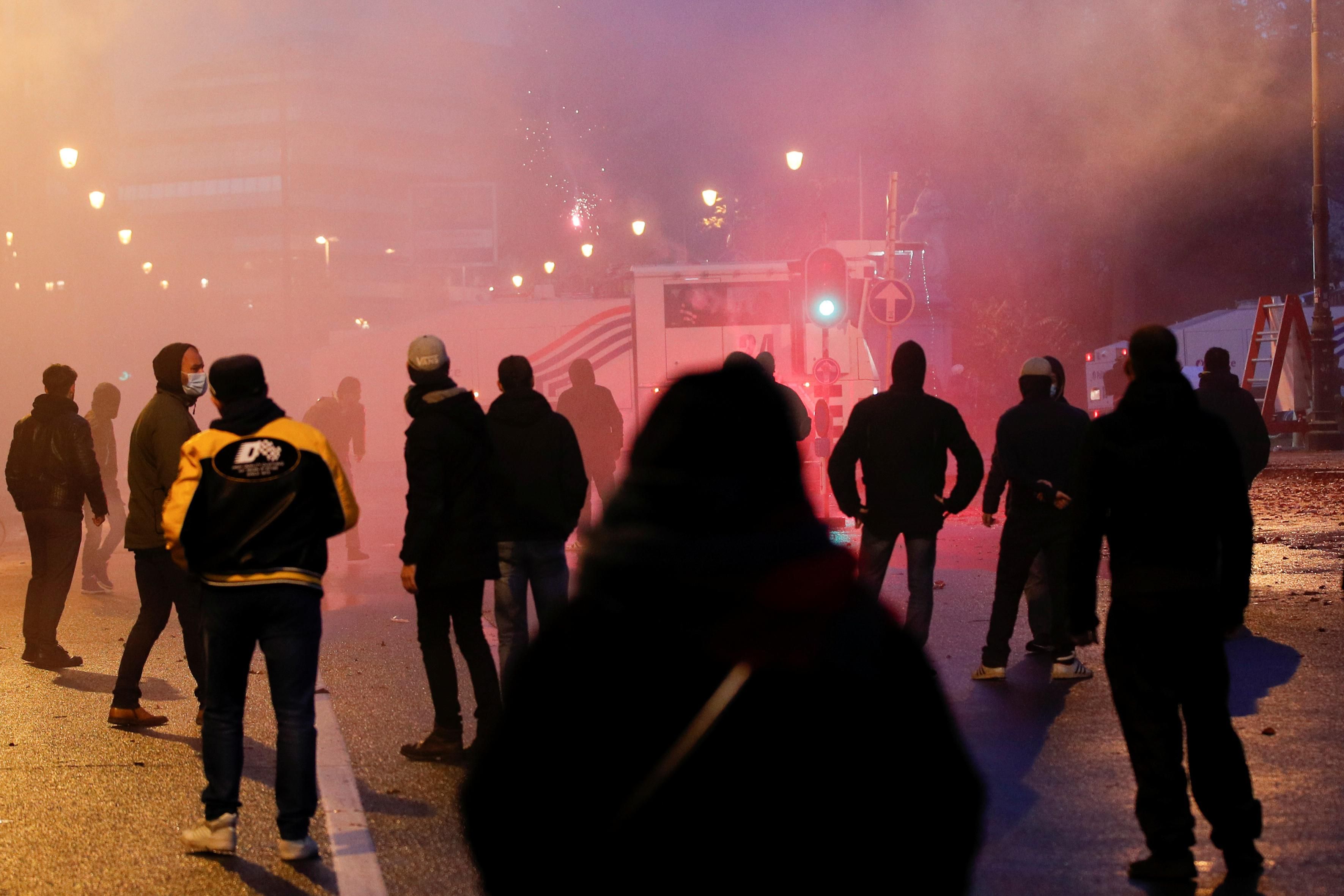What We're Watching: Europe's anti-lockdown protests, Chileans vote, a shaky deal in Sudan, German negotiations in the home stretch
Europe anti-lockdown protests get violent. Pockets of unrest spread across Europe in recent days as tens of thousands gathered in several cities across the continent to protest government measures aimed at curbing a fast-spreading wave of COVID-19. Violent clashes broke out between demonstrators and police in The Hague and Rotterdam where Dutch cops opened fire at an increasingly aggressive crowd protesting the tightening of restrictions. Meanwhile, more that 35,000 people turned out in Brussels, while large crowds rocked Vienna, protesting fresh lockdowns that initially targeted only the unvaccinated, as well as new vaccine mandates. The state of the pandemic in Europe is not good. Germany recorded more than 48,000 new cases Sunday, the highest on record, prompting new lockdowns in the lead-up to Christmas, while deaths across the continent are also rising since the summer months, though they remain well below pre-vaccine levels. What's more, far-right groups, like Austria's Freedom Party, are taking advantage of COVID fatigue and anti-vaxx sentiment to encourage people to defy government rules and sow chaos.
Chileans cast 'em for Kast. Far right former senator José Antonio Kast won the first round of Chile's presidential election, taking about 28 percent of the vote to finish just ahead of leftwing former protest leader Gabriel Boric, who got about 26 percent. The two will now head to a December runoff that presents a stark choice. Kast is an ultraconservative Catholic who idolizes former dictator Augusto Pinochet, and who rode a wave of anti-immigrant sentiment to the top of the polls in recent months. Boric, now a congressman, was a leader of the 2011 student protests over education reform. The first round election result comes in the wake of two years of social upheaval in Chile, in which mass protests over inequality and corruption led to the election of a largely leftwing constituent assembly to rewrite the country's Pinochet-era constitution. The final showdown will take place on December 19. Meanwhile, 2,000 miles (or 5,000, depending on where in Chile you start from) away in Venezuela, we're still awaiting results of nationwide local elections, the first vote that the opposition has participated in since 2017. At least as important as the outcome is the report of EU election observers on whether it was fair.
A tenuous deal in Sudan.One month after the Sudanese army deposed the country's joint civilian-military government, Prime Minister Abdallah Hamdok was released from detention Sunday. The new deal negotiated by Lt. Gen. Abdel Fattah al-Burhan, who led last month's coup, reinstates Hamdok as PM and calls for the release of arbitrarily detained political prisoners. Al-Burhan says he supports the return to a power-sharing agreement, though it's unclear what this might actually look like given that the military staged the coup in the first place to avoid handing over executive powers to the civilian leadership. Meanwhile, protesters took to the streets of Khartoum, saying the deal is merely a ploy by the military to get Washington to remove crippling sanctions, while still maintaining a grip on power. Indeed, critics say that the ongoing political involvement of Lt. Gen. Mohamed Hamdan Dagalo – a former paramilitary leader with close ties to Sudan's former despot Omar al-Bashir – is proof that the military wing of the government is not serious about democratic reforms.
Who's going to run Germany? With coalition negotiations now reportedly in the home stretch, we could know what the next German government looks like as soon as Monday or Tuesday. Following elections that were held back in September, the center-left SPD, headed by Chancellor-in-waiting Olaf Scholz, has been hammering together a three-way coalition with the progressive Greens and the fiscal hawks of the Free Democrats Party. One big question mark is whether the spendthrift Greens or the tighter-pursestrings FDP will get the powerful finance ministry portfolio. Meanwhile, Green Party leader Annalena Baerbock is expected to become Germany's first female foreign minister, part of Scholz's larger pledge to ensure that the cabinet is equally split between men and women.
